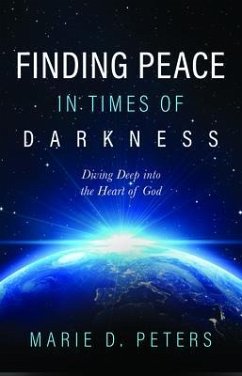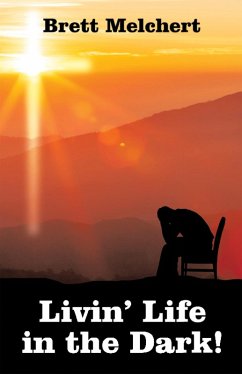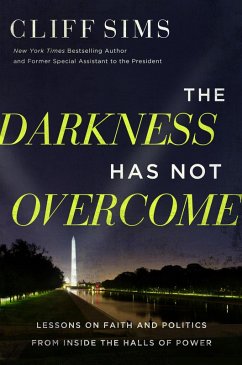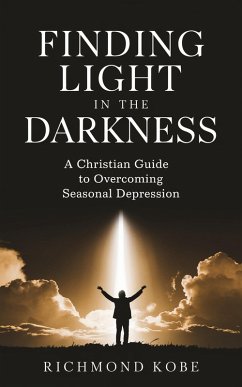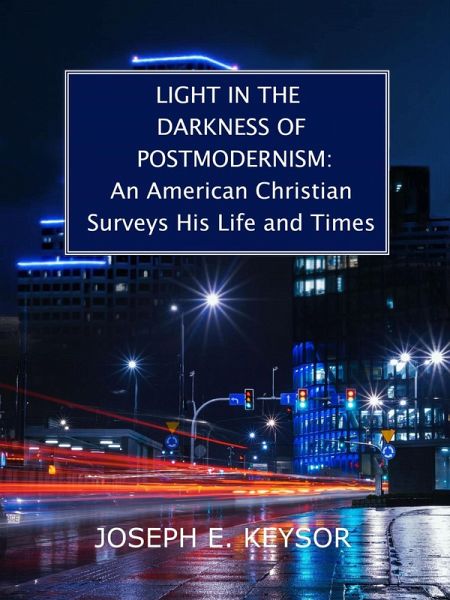
Light in the Darkness of Postmodernism: An American Christian Surveys His Life and Times (eBook, ePUB)

PAYBACK Punkte
0 °P sammeln!
LIGHT IN THE DARKNESS OF POSTMODERNISM is partly spiritual autobiography. Brief descriptions of the author's temporal life - including teaching experiences in Asia and in the Middle East - are secondary, being merely the worldly framework for a deeper journey from unbelief to faith, from basic but essential doctrines to deeper scriptural concerns for sanctification, election, and holiness in the context of daily Christian living.Short biographical narrative sections are alternated with extended comments on the decades through which the author has lived. The materialism of the 50s and the empti...
LIGHT IN THE DARKNESS OF POSTMODERNISM is partly spiritual autobiography. Brief descriptions of the author's temporal life - including teaching experiences in Asia and in the Middle East - are secondary, being merely the worldly framework for a deeper journey from unbelief to faith, from basic but essential doctrines to deeper scriptural concerns for sanctification, election, and holiness in the context of daily Christian living.
Short biographical narrative sections are alternated with extended comments on the decades through which the author has lived. The materialism of the 50s and the emptiness of modern public education and mass entertainment; the counterculture of the 1960s and the closely related movements of feminism and gay rights; the rise and fall of the politicized religious right and the emergence of Islamic fundamentalism in the 70s and 80s; the abortion catastrophe and America's increasingly rapid slide into political leftism - these and other aspects of our modern and postmodern society are examined in the light of biblical teachings and values as the author understands them.
Also examined are some of the problems of the nominally Bible-believing churches. Diluted concepts of repentance and theoretical notions of faith lead to something less than the authentic spiritual life as described in the New Testament. Various areas of conformity to the world hinder the witness even of the nominally Bible-believing churches, leading to a situation in which biblical Christianity is no longer of any relevance in the greater portion of American society.
A chapter of Christian apologetics is devoted to the philosophical assaults made by secularism and especially atheism. Abraham's sacrifice of Isaac; the massacres of the Canaanites; the problem of evil, as well as the problem of good (whence do goodness and love arise in a meaningless universe?); the age of the earth, and the historicity of Genesis - these and yet other contentious areas are examined in such a way as to demonstrate that the traditionally biblical world view and the full historic reliability of the Bible are just as valid today as they were in the 1st century AD. Further discussion centers on the inadequacies of secularism, with its intellectual poverty and inability to account for many fundamental aspects of the human experience.
The final chapter is entitled "The Wrath of God?", and raises the question of God's judgments being operative on earth in our own day, before the end times, before the tribulation. Is it not inevitable that America also will go the way of Babylon, Greece, and Rome?
Short biographical narrative sections are alternated with extended comments on the decades through which the author has lived. The materialism of the 50s and the emptiness of modern public education and mass entertainment; the counterculture of the 1960s and the closely related movements of feminism and gay rights; the rise and fall of the politicized religious right and the emergence of Islamic fundamentalism in the 70s and 80s; the abortion catastrophe and America's increasingly rapid slide into political leftism - these and other aspects of our modern and postmodern society are examined in the light of biblical teachings and values as the author understands them.
Also examined are some of the problems of the nominally Bible-believing churches. Diluted concepts of repentance and theoretical notions of faith lead to something less than the authentic spiritual life as described in the New Testament. Various areas of conformity to the world hinder the witness even of the nominally Bible-believing churches, leading to a situation in which biblical Christianity is no longer of any relevance in the greater portion of American society.
A chapter of Christian apologetics is devoted to the philosophical assaults made by secularism and especially atheism. Abraham's sacrifice of Isaac; the massacres of the Canaanites; the problem of evil, as well as the problem of good (whence do goodness and love arise in a meaningless universe?); the age of the earth, and the historicity of Genesis - these and yet other contentious areas are examined in such a way as to demonstrate that the traditionally biblical world view and the full historic reliability of the Bible are just as valid today as they were in the 1st century AD. Further discussion centers on the inadequacies of secularism, with its intellectual poverty and inability to account for many fundamental aspects of the human experience.
The final chapter is entitled "The Wrath of God?", and raises the question of God's judgments being operative on earth in our own day, before the end times, before the tribulation. Is it not inevitable that America also will go the way of Babylon, Greece, and Rome?
Dieser Download kann aus rechtlichen Gründen nur mit Rechnungsadresse in A, B, CY, CZ, D, DK, EW, E, FIN, F, GR, H, IRL, I, LT, L, LR, M, NL, PL, P, R, S, SLO, SK ausgeliefert werden.




